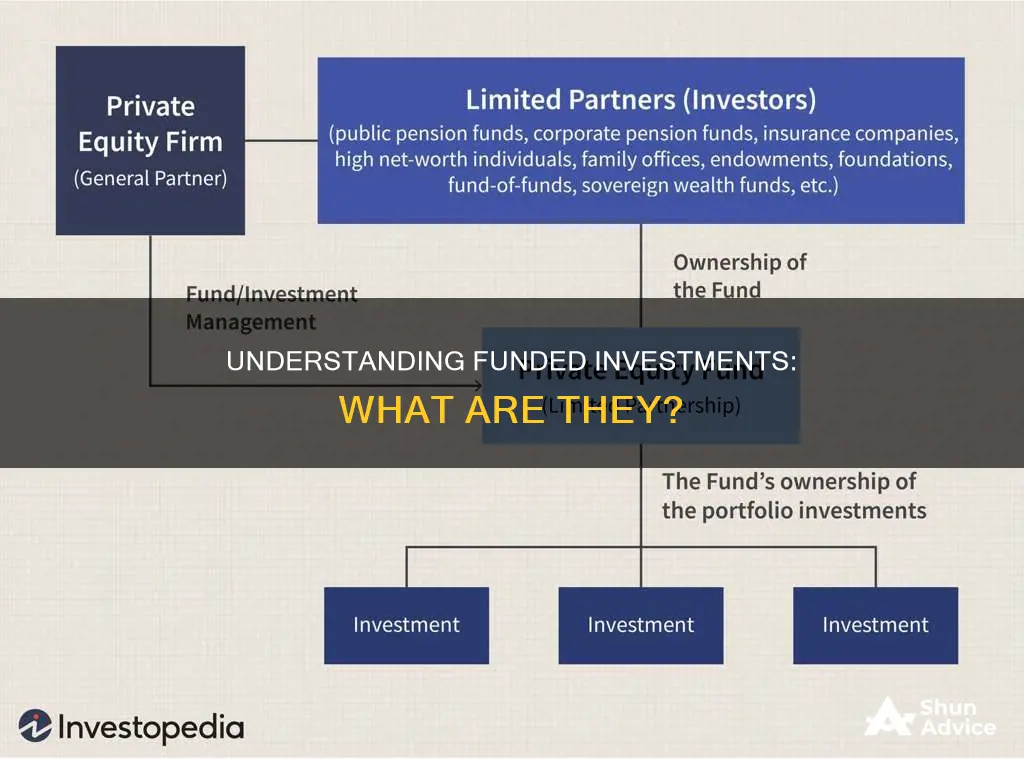
Investment funds are a way of investing money, where multiple investors pool their capital to purchase a portfolio of various securities, such as stocks and bonds. This collective investment approach offers several advantages, including the ability to hire professional investment managers, achieve economies of scale, and increase asset diversification to reduce risk. The funds are managed by fund managers, who make investment decisions on behalf of the investors, following strategies such as active or passive management.
There are various types of investment funds, including mutual funds, exchange-traded funds (ETFs), and hedge funds, each with distinct investment strategies and risk profiles. Investment funds can be further categorised as open-ended or closed-ended, and public or private.
While investment funds offer benefits like professional management, diversification, and access to a wide range of investment opportunities, they also carry risks, such as potential losses, exposure to market fluctuations, and high management fees.
| Characteristics | Values |
|---|---|
| Purpose | To pool capital from multiple investors to purchase a portfolio of various securities |
| Management | Managed by a professional portfolio manager who makes investment decisions on behalf of the investors |
| Investment Decisions | The portfolio manager decides which assets to buy or sell, how many and when |
| Investor Control | Each investor owns their individual shares in the fund but doesn't have any influence on where the money in the fund is invested |
| Investor Benefits | Potential benefits include professional management, diversification, flexibility, and transparency |
| Investor Risks | Potential risks include lack of control, market risk, lack of liquidity, and fees and expenses |
| Types | Mutual funds, exchange-traded funds (ETFs), and hedge funds |
What You'll Learn

Types of funded investments
Funded investments are a way to raise capital for a business. There are several types of investor funding, and they can be categorised into three basic types: equity, loans, and convertible debt. Each method has its advantages and disadvantages and is more suitable for certain situations.
Equity
Equity fundraising is a sought-after form of capital for entrepreneurs as it offers an attractive option with no repayment schedule and high-powered investor partners. In exchange for the money they invest, investors receive a stake in the company and its performance. This usually involves giving up a significant portion of ownership in the company, which can reduce the control of the founders.
Loans
Loan or debt-based fundraising is the most common form of outside capital for new businesses. It is a simple concept: you borrow money and pay it back later with interest. This type of funding is useful when you need a smaller amount of capital, need the money quickly, or need the money for a tangible reason.
Convertible Debt
Convertible debt is a combination of debt and equity. Investors provide money with the understanding that the loan will be repaid or turned into a share in the company at a later date. This type of funding is suitable for startups that are not yet ready to set a valuation for their company but believe their valuation will increase soon.
Series Funding
Series funding is another way to categorise funded investments. Series A, B, and C are funding rounds that generally follow "seed funding" and "angel investing". They provide investors with the opportunity to invest cash in a growing company in exchange for equity or partial ownership. Series funding can help a company to expand its market reach, develop new products, or expand into new markets.
Invest Wisely: Low-Cost Index Funds for Long-Term Gains
You may want to see also

How funded investments work
Funded investments, or investment funds, are a way of investing money that allows individuals to pool their capital with that of other investors. This collective investment model offers several advantages, such as:
- The ability to hire professional investment managers, who may offer better returns and more adequate risk management.
- The benefits of economies of scale, including lower transaction costs.
- Increased asset diversification, which can help to reduce unsystematic risk.
There are various types of investment funds, including mutual funds, exchange-traded funds (ETFs), and hedge funds. Each fund has its own investment strategy and risk profile, and they may be divided into open-ended and closed-ended funds. Open-ended funds are more popular with investors as they can issue and redeem shares at any time, whereas closed-ended funds issue a fixed number of shares that can only be bought or sold in the market.
Investment funds are usually subject to fees, including management fees and expenses, which can impact overall returns. These fees may vary depending on the type of fund and the investment strategy employed.
When investing in a fund, individuals are entrusting their money to a professional manager, who makes investment decisions on their behalf. While this can provide access to a broader selection of investment opportunities, it also means that investors have no influence over where the money in the fund is invested.
Overall, investment funds offer the potential for higher returns and reduced risk through professional management and diversification. However, they also carry risks, including the potential for losses, exposure to market fluctuations, and high management fees.
Monthly Mutual Fund Investment: A Step-by-Step Guide
You may want to see also

Benefits of funded investments
A funded investment is a supply of capital belonging to numerous investors, used to collectively purchase securities. An investment fund is a product that combines the savings of many people and puts them in the hands of a team of investment experts, the fund managers, so that they can make the money grow.
Access to Expertise
Fund managers are investment professionals who decide how, when and in what to invest your money. They have the expertise to make your money grow and can implement more efficient and different strategies than you would be able to on your own.
Diversification
Investment funds allow you to diversify your investments and have a more balanced portfolio for less money. They give you access to asset classes beyond your reach as an individual.
Liquidity
Investment funds are liquid assets, which means you can get your money back whenever you want. This makes them ideal for investors who want to be able to access their money at all times.
Regulation and Transparency
Investment funds are subject to strict regulation and supervision by financial authorities. They are also transparent in terms of performance, fees and fund policies.
Tax Benefits
Investment funds offer tax advantages such as tax-free transfers between funds and progressive taxation on profits. This allows you to take better advantage of compound interest and defer taxes until the end.
L&T Emerging Business Fund: A Smart Investment Strategy
You may want to see also

Risks of funded investments
Funded investments, also known as investment funds, are a supply of capital belonging to multiple investors, which is used to collectively purchase securities. Investment funds can be used to pool capital and generate a return, with investors retaining ownership and control of their shares.
While funded investments can provide a broader selection of investment opportunities, greater management expertise, and lower investment fees, they are not without their risks. Here are some of the potential risks associated with funded investments:
Market Risk
The value of investments can rise or fall due to market conditions. For example, stock prices can be volatile, and even historically strong stocks can underperform bonds in certain periods.
Business Risk
Corporate decisions, such as expansion strategies or mergers, can affect the value of investments.
Political and Currency Risk
Events within a country can impact international investments, including political decisions and currency fluctuations.
Liquidity Risk
This refers to how easy or difficult it is to cash out of an investment. Some investments may have restrictions or penalties for early withdrawals.
Concentration Risk
Investing in a single asset or a small number of assets increases the risk of loss. Diversifying investments across different assets or sectors can help mitigate this risk.
Inflation Risk
Even relatively safe investments, such as certificates of deposit (CDs), may not keep pace with the increasing cost of living, resulting in a loss of purchasing power over time.
Failure and Fraud Risk
Businesses funded through equity crowdfunding, for instance, may have a higher risk of failure or fraud compared to those funded through venture capital or other traditional means, as they may lack the necessary business expertise and support.
Time to Materialize
Returns on some investments, such as equity crowdfunding ventures, may take many years to materialize or may not occur at all. This can result in capital erosion rather than wealth creation.
Security Risk
Crowdfunding portals and platforms are vulnerable to attacks from hackers and cyber-criminals, which can compromise investors' personal and financial information.
Regulatory and Protection Risk
In the event of poor investment performance, investors may not be protected or compensated. Regulatory bodies like the Financial Services Compensation Scheme (FSCS) and the Financial Ombudsman Service (FOS) typically do not cover poor investment performance.
High-Risk Investment Strategies
Some businesses offering investments may employ risky investment strategies, increasing the likelihood of failure and loss of investment.
Adverse Cost Risk
In rare circumstances, investors may lose more than the amount invested due to adverse cost risk. After-the-event (ATE) insurance may be put in place for such cases, but payout is not guaranteed.
Lack of Protection for Early Withdrawal
Early withdrawal from an investment may result in exit fees or additional charges. Additionally, it may be difficult to find a buyer in a secondary market, and the sale price may be lower than expected.
Hedge Funds: Investing in Your Business and You
You may want to see also

Sources of funded investments
A funded investment is when a company raises capital by selling ownership stakes in the form of shares to investors. This is known as equity funding. There are several sources of funded investments, and they can be categorised as either internal or external.
Internal Sources of Funded Investments
- Retained earnings: Companies can use their net income or profits to fund projects and fuel growth. This is the most basic source of funds for any company.
- Selling off assets: Companies can sell assets to raise money.
- Owners' funds: Companies can use money from their owners to fund projects.
External Sources of Funded Investments
- Debt capital: Companies can borrow money from lenders or issue corporate debt in the form of bonds.
- Equity capital: Companies can sell ownership stakes to investors in exchange for investment.
- Crowdfunding: Companies can raise funds by obtaining small amounts of money from a large number of individuals.
- Donations and grants: Non-profits and social enterprises can receive funding from donors motivated by the cause rather than financial returns.
- Government grants and subsidies: Governments provide grants and subsidies to support specific projects, initiatives or sectors that align with public policy goals.
Hotel Investment Fund Fees: What's the Typical Range?
You may want to see also
Frequently asked questions
A funded investment is when a company or individual uses external capital to finance a need, program, or project. This can be in the form of credit, venture capital, donations, grants, savings, subsidies, or taxes.
Funded investments can provide access to a wider range of investment opportunities, greater management expertise, and lower investment fees than investors might be able to obtain on their own.
There are various types of funded investments, including mutual funds, exchange-traded funds (ETFs), and hedge funds, each with its own investment strategy, risk profile, and target industry sectors.







